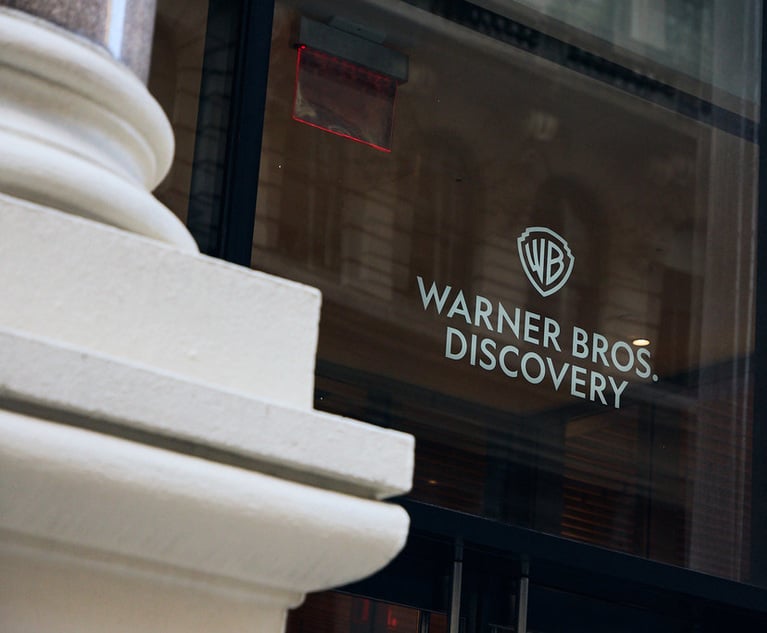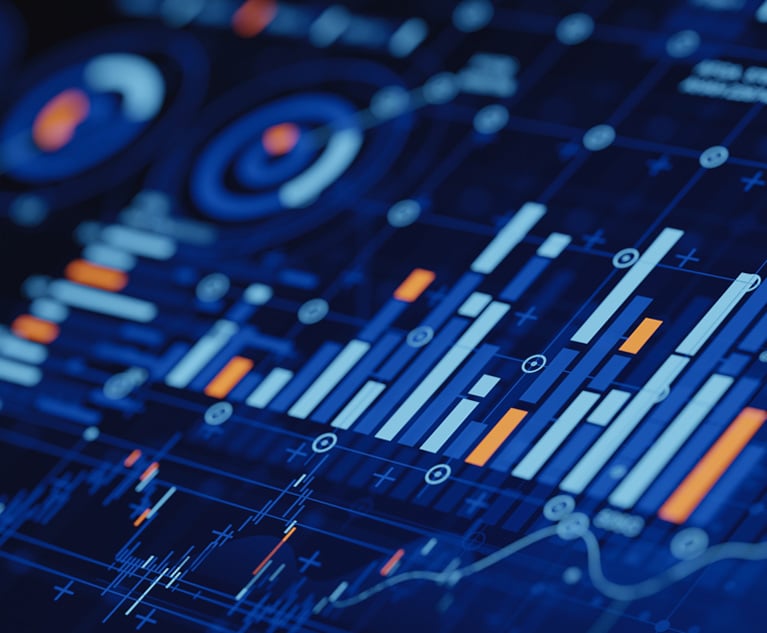Boeing Resists Deposition Over Max 8 Docs Given to Congress
Boeing goes to court on Wednesday to fight a subpoena to depose one of its executives in lawsuits brought over last year's Ethiopian Airlines crash involving its grounded 737 Max 8 aircraft. Plaintiffs' lawyers want to know why Boeing produced certain discovery materials to Congress but not to them.
February 18, 2020 at 05:13 PM
5 minute read
 Family members of Boeing Co. 737 Max crash victims hold photographs as Dennis Muilenburg, chief executive officer of Boeing Co., speaks during a House Transportation and Infrastructure Committee hearing in Washington, D.C., on Oct. 30, 2019. Muilenburg declined to endorse specific reforms to bolster safety oversight of the aerospace giant during a sometimes angry grilling in his first appearance before Congress since two 737 Max crashes killed 346 people. Photographer: Andrew Harrer/Bloomberg
Family members of Boeing Co. 737 Max crash victims hold photographs as Dennis Muilenburg, chief executive officer of Boeing Co., speaks during a House Transportation and Infrastructure Committee hearing in Washington, D.C., on Oct. 30, 2019. Muilenburg declined to endorse specific reforms to bolster safety oversight of the aerospace giant during a sometimes angry grilling in his first appearance before Congress since two 737 Max crashes killed 346 people. Photographer: Andrew Harrer/Bloomberg
The Boeing Co. goes to court on Wednesday to fight a subpoena to depose one of its executives in lawsuits brought over last year's Ethiopian Airlines crash involving its grounded 737 Max 8 aircraft.
Plaintiffs' lawyers, representing the families of the victims of the crash, want to know why Boeing produced certain discovery materials to Congress but not to them. They originally scheduled a Feb. 18 videotaped deposition but held off after Boeing brought a motion to quash the subpoena, insisting that plaintiffs' attorneys received the same information that Congress did, and that attorney-client privilege protected decisions relating to the production of those documents.
U.S. Magistrate Judge David Weisman of the Northern District of Illinois is set to hear the motion on Wednesday.
"Plaintiffs have issued a deposition notice that would require Boeing to produce a corporate representative to testify about Boeing's collection and production of documents for a separate proceeding—specifically, the ongoing Congressional inquiries into the 737 Max," wrote Boeing attorney Dan Webb in the Feb. 13 motion to quash. "But this deposition notice improperly seeks privileged information, for Boeing's collection and production of documents to Congress has of course been overseen and directed by counsel."
The motion included an attached declaration from Boeing Assistant General Counsel Jonathan Boatman, insisting that such information was "inextricably intertwined with not only advice and communications with counsel, but also attorney mental impressions and thought processes."
Webb, co-executive chairman at Winston & Strawn, did not respond to a request for comment.
Attorney Robert Clifford, of Chicago's Clifford Law Offices, said Boeing has not given plaintiffs the same documents that Congress received, and a corporate representative should explain why.
"We're trying to get the discovery moving here," he said.
The discovery dispute comes as Congress continues to probe the cause of the March 10 crash that killed 157 people and came about four months after 189 people perished on a Lion Air flight that also involved the Max 8 aircraft. In October, the U.S. House of Representatives Committee on Transportation and Infrastructure and the U.S. Senate Committee on Commerce, Science, and Transportation held hearings about the Max 8.
Boeing, meanwhile, has delayed reintroducing the Max 8 to the air. Last month, Boeing posted its first annual loss in two decades due to the grounding of the aircraft, which has cost nearly $19 billion.
Last year, Boeing agreed to mediate lawsuits brought over the Lion Air crash, and offered a $100 million fund to local community groups and nonprofits to assist families of the victims of both Max 8 crashes.
About 100 lawsuits brought over the Ethiopian Airlines crash are pending, with discovery just beginning.
In a Monday status report, Boeing said it had agreed to make John Hamilton, the chief engineer of the Max 8 who testified before Congress, available for a deposition on April 15 or 16, but still opposed the request for a corporate representative. The Jan. 14 subpoena included "all methods and/or procedures" Boeing used in its production of documents to Congress.
"These review and collection efforts were prepared, directed, and performed by or in conjunction with counsel," Webb wrote in Boeing's motion to quash. "Plaintiffs nevertheless seek to probe into privileged subject matter including counsel's mental impressions, strategy decisions, and thought processes."
Boeing, which said it had produced 27,000 documents to Congress, said plaintiffs' lawyers have the same materials other than those relating to the particulars of the crash investigations, which the National Transportation Safety Board prohibits it from disclosing under Annex 13 of the Convention on International Civil Aviation.
In Monday's status report, Clifford said Boeing is using the federal limitation to protect too much.
"Whether and to what extent Boeing withheld materials relevant to the design failures on the 737 Max aircraft from the Lion Air investigators is critical to the question of liability and punitive damages," he wrote in Monday's status report.
This content has been archived. It is available through our partners, LexisNexis® and Bloomberg Law.
To view this content, please continue to their sites.
Not a Lexis Subscriber?
Subscribe Now
Not a Bloomberg Law Subscriber?
Subscribe Now
NOT FOR REPRINT
© 2025 ALM Global, LLC, All Rights Reserved. Request academic re-use from www.copyright.com. All other uses, submit a request to [email protected]. For more information visit Asset & Logo Licensing.
You Might Like
View All
COVID-19 Vaccine Suit Against United Airlines Hangs on Right-to-Sue Letter Date
3 minute read

JetBlue Airways Will Pay $2M to Settle DOT Charges of Chronically Delayed Flights

The Week in Data Jan. 2: A Look at Legal Industry Trends by the Numbers
Trending Stories
- 1No Two Wildfires Alike: Lawyers Take Different Legal Strategies in California
- 2Poop-Themed Dog Toy OK as Parody, but Still Tarnished Jack Daniel’s Brand, Court Says
- 3Meet the New President of NY's Association of Trial Court Jurists
- 4Lawyers' Phones Are Ringing: What Should Employers Do If ICE Raids Their Business?
- 5Freshfields Hires Ex-SEC Corporate Finance Director in Silicon Valley
Who Got The Work
J. Brugh Lower of Gibbons has entered an appearance for industrial equipment supplier Devco Corporation in a pending trademark infringement lawsuit. The suit, accusing the defendant of selling knock-off Graco products, was filed Dec. 18 in New Jersey District Court by Rivkin Radler on behalf of Graco Inc. and Graco Minnesota. The case, assigned to U.S. District Judge Zahid N. Quraishi, is 3:24-cv-11294, Graco Inc. et al v. Devco Corporation.
Who Got The Work
Rebecca Maller-Stein and Kent A. Yalowitz of Arnold & Porter Kaye Scholer have entered their appearances for Hanaco Venture Capital and its executives, Lior Prosor and David Frankel, in a pending securities lawsuit. The action, filed on Dec. 24 in New York Southern District Court by Zell, Aron & Co. on behalf of Goldeneye Advisors, accuses the defendants of negligently and fraudulently managing the plaintiff's $1 million investment. The case, assigned to U.S. District Judge Vernon S. Broderick, is 1:24-cv-09918, Goldeneye Advisors, LLC v. Hanaco Venture Capital, Ltd. et al.
Who Got The Work
Attorneys from A&O Shearman has stepped in as defense counsel for Toronto-Dominion Bank and other defendants in a pending securities class action. The suit, filed Dec. 11 in New York Southern District Court by Bleichmar Fonti & Auld, accuses the defendants of concealing the bank's 'pervasive' deficiencies in regards to its compliance with the Bank Secrecy Act and the quality of its anti-money laundering controls. The case, assigned to U.S. District Judge Arun Subramanian, is 1:24-cv-09445, Gonzalez v. The Toronto-Dominion Bank et al.
Who Got The Work
Crown Castle International, a Pennsylvania company providing shared communications infrastructure, has turned to Luke D. Wolf of Gordon Rees Scully Mansukhani to fend off a pending breach-of-contract lawsuit. The court action, filed Nov. 25 in Michigan Eastern District Court by Hooper Hathaway PC on behalf of The Town Residences LLC, accuses Crown Castle of failing to transfer approximately $30,000 in utility payments from T-Mobile in breach of a roof-top lease and assignment agreement. The case, assigned to U.S. District Judge Susan K. Declercq, is 2:24-cv-13131, The Town Residences LLC v. T-Mobile US, Inc. et al.
Who Got The Work
Wilfred P. Coronato and Daniel M. Schwartz of McCarter & English have stepped in as defense counsel to Electrolux Home Products Inc. in a pending product liability lawsuit. The court action, filed Nov. 26 in New York Eastern District Court by Poulos Lopiccolo PC and Nagel Rice LLP on behalf of David Stern, alleges that the defendant's refrigerators’ drawers and shelving repeatedly break and fall apart within months after purchase. The case, assigned to U.S. District Judge Joan M. Azrack, is 2:24-cv-08204, Stern v. Electrolux Home Products, Inc.
Featured Firms
Law Offices of Gary Martin Hays & Associates, P.C.
(470) 294-1674
Law Offices of Mark E. Salomone
(857) 444-6468
Smith & Hassler
(713) 739-1250








